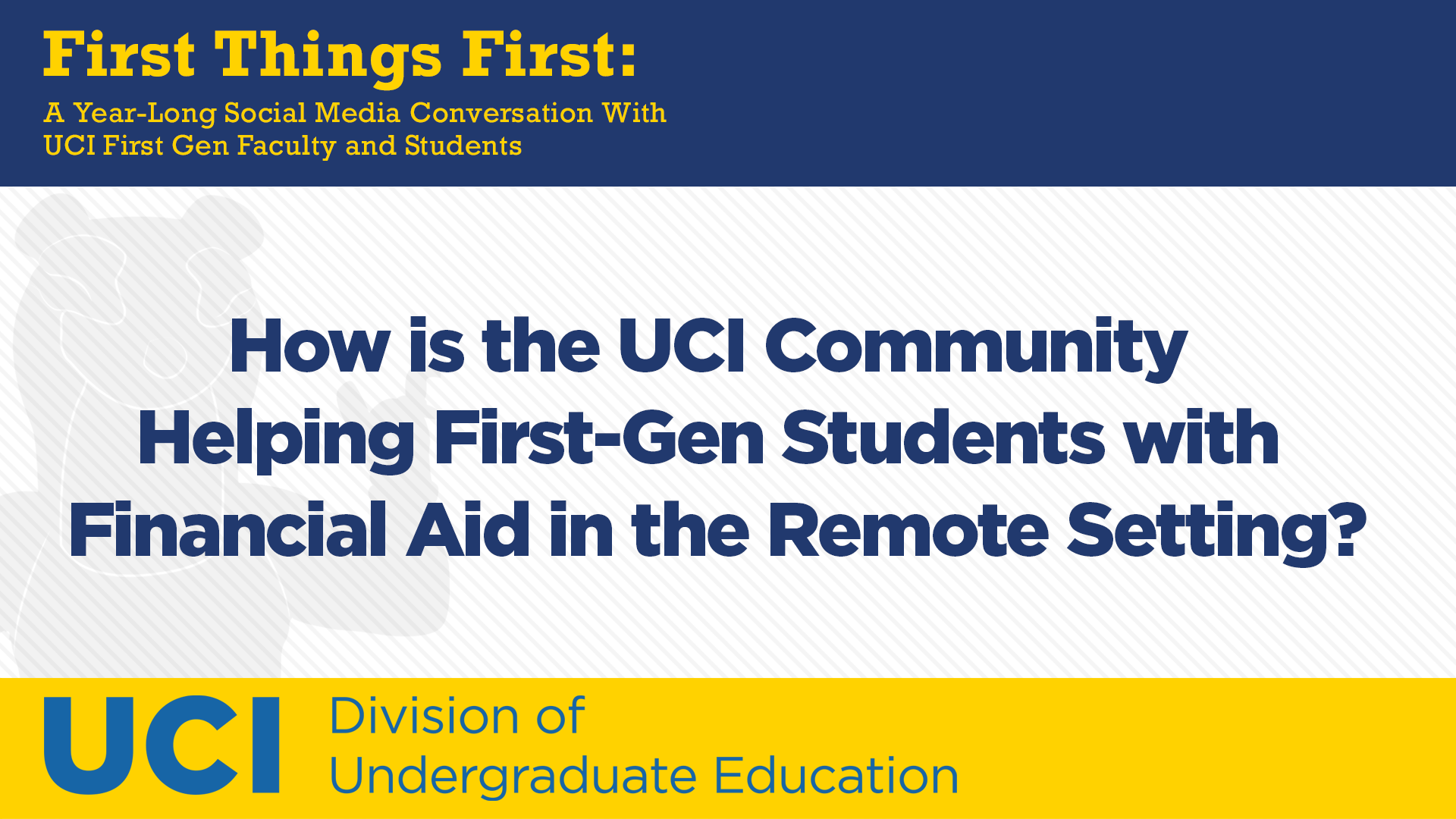
It’s the final quarter of the First Things First project, and our first-gen students and their faculty mentors are changing things up! Now, students Leon Masuda and Gretta Ozuna are the ones asking the questions.
To kick off this quarter, Professor Pavan Kadandale answers Leon’s questions about where first-gen students can turn for assistance with financial aid. Leon responds to Professor Kadandale’s video, explaining her own experiences with financial aid and offering advice to help other UCI students make the most of their financial opportunities.
Professor Pavan Kadandale
In this week’s update, Professor Pavan Kadandale explains how UCI students can get help with financial aid in this remote environment. He directs students to the UCI Office of Financial Aid and Scholarships and also recommends that students reach out to their individual school or academic department for additional resources and information.
Leon Masuda Responds to Professor Kadandale
In response to Professor Kadandale’s last video, Leon shares how the UCI Office of Financial Aid and Scholarships helped her when she got her financial aid package last Fall. She also recommends that students take advantage of the many scholarship opportunities available through the office. Finally, Leon advises that students check out the Center for Excellence in Writing and Communication if they need help writing essays as part of their scholarship applications.
[iframe width=”560″ height=”315″ src=”https://www.youtube.com/embed/videoseries?list=PLcjHXyh5ZkV3rLhlXvAEIk6QTphII30B1″]
The First Things First project is an evolution of UCI’s First-Generation Faculty Initiative, designed to help first-gen students overcome the challenges brought about by the pandemic. This new “virtual” mentorship program pairs two incoming UCI first-gen students with first-gen faculty members for a year-long, social-media-distributed conversation about the transition to university life. The goal of First Things First is to help UCI’s entire first-gen population, as well as first-gen students throughout higher education, build a sense of community—even in this remote college environment. To further this project, we invite you to share this article on your social media channels and with your network.
